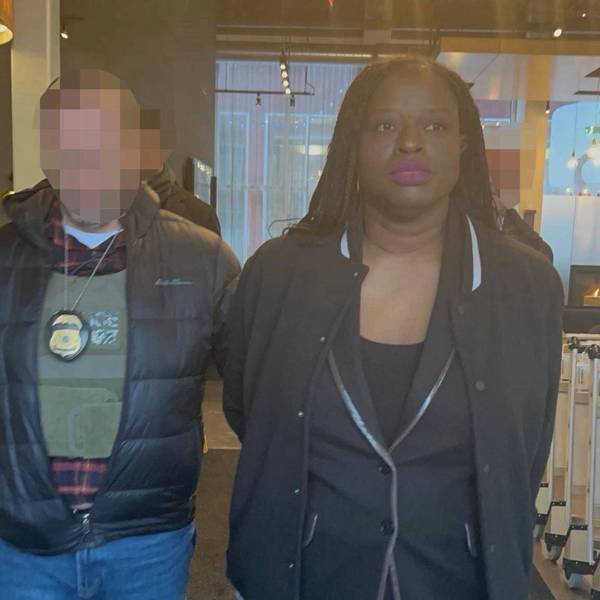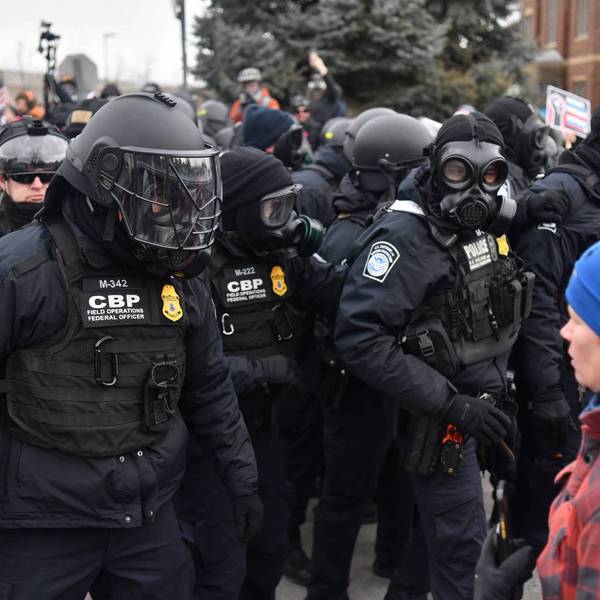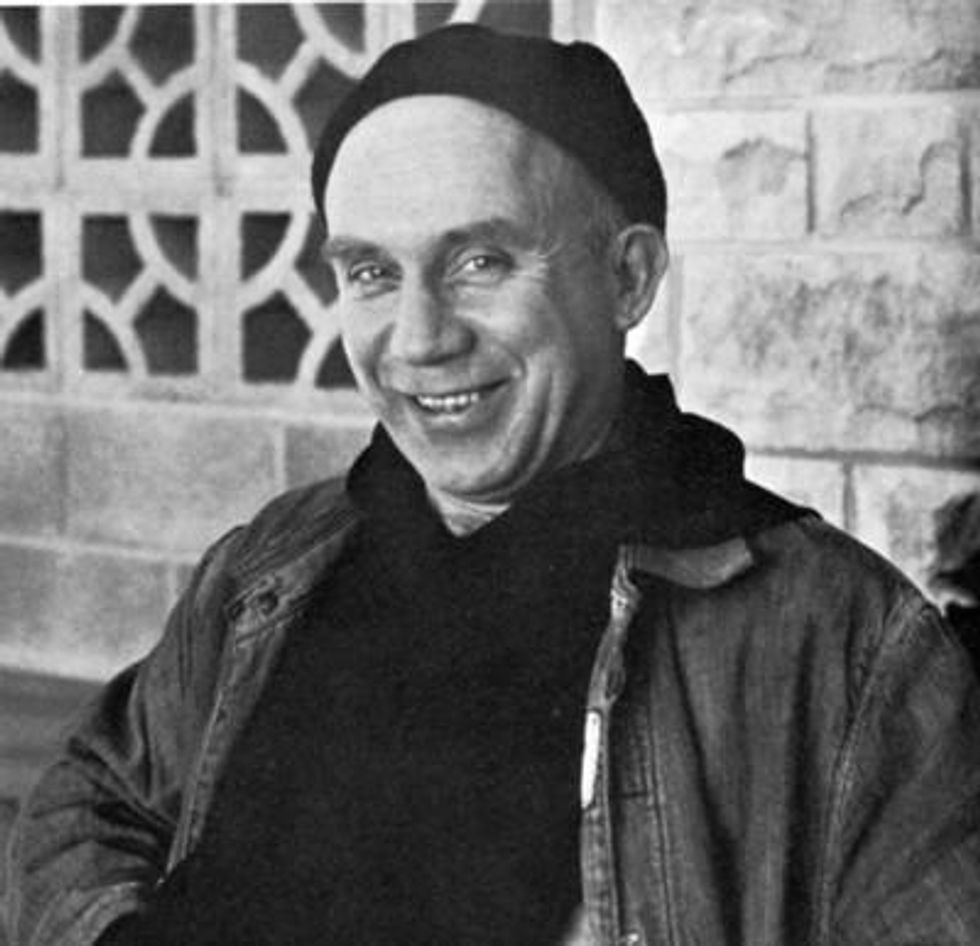I am not now nor have I ever been a journalist. I am however a practicing Catholic who has closely followed the recent visit of Pope Francis to the United States. I must say I was stunned when my wife called me at work to tell me that the pope had referenced Dorothy Day and Thomas Merton in his remarks to Congress. The response was swift and immediate. Within seconds, Google searches numbered in the thousands. Who are these people? It did not take long for the spin to begin.
We Americans love our Catholic saints. However we like the sanitized, whitewashed, acceptable versions. Thomas Merton was a "pious monk." Dorothy Day was a Catholic social worker who helped the poor. Neither of these characterizations capture who these two Catholics truly were and what they represented in U.S. society. Holding up these two radical, pacifist, militantly anti-war Catholics--one with a lengthy prison record who was nearly charged with sedition--as role models was a remarkable act by Pope Francis. But you wouldn't get that from reading many articles on his time in the U.S. While there is much attention and significance placed on the pope's meeting with Kim Davis, the clerk who refuses to grant marriage licenses to same sex couples, his praise of Dorothy Day and Thomas Merton--uttered in the halls of the Congress of the most powerful nation on earth--deserves greater analysis than a Google search or a short journey through Wikipedia.
"Those who knew Merton and Dorothy know that their true politics would never be embraced or lauded by the political establishment today, just as they were criminalized by the principalities and powers of their time."
I knew, lived, and worked with Dorothy Day. I first met her in the early sixties in a church basement on the south side of Chicago. No more than a dozen people were in attendance. She was not at that time a very popular figure. In fact, quite the opposite. Her writings were considered downright subversive. She had criticized and eulogized as unjust the execution of the Rosenbergs in 1953. She and other members of the Catholic Worker community were arrested for refusing to take shelter during the mandatory air raid drills in New York City in the fifties. The paper had condemned the bombing of Hiroshima. Her stand on Vietnam was one of the earliest opposition statements. Her writings profoundly affected the likes of Thomas Merton as well as Phillip and Daniel Berrigan.
I arrived at the Catholic Worker in New York City in the Summer of 1969. For a working class kid from Chicago's South Side it was a culture shock. Small things like buying "pizza by the slice" instead of the whole pizza fascinated me. Much more would follow. Dorothy always had a great affection and interest in the Cuban revolution. She herself had traveled to Cuba and wrote a great deal about it. It was only logical that when an opportunity presented itself to participate in an historic international event around Cuba that she and the Catholic Worker would be involved. The event was the Harvest of the Ten Million. It was to be a combined effort of all participating Socialist countries to come to Cuba in an act of solidarity and cut ten million tons of sugar cane. The hope was that this would jumpstart the Cuban economy. Students and young people from North Korea, North Vietnam, the Soviet Union would participate. A delegation from the United States consisting of anti-war activists, civil rights figures and various radical political organizations joined in under the banner of the Venceremos Brigade. An invitation was extended to the Catholic Worker to go and write a piece for the paper. I never for a moment thought I would be the one. To use a sports analogy, I was the eighth one in the batting order and played right field. At the Catholic Worker in that era were brilliant people who later in life would become serious Catholic journalists and even go on to the lecture circuit and some would publish anthologies of Dorothy Day. Why not send them? As circumstance had it, no one was available to go. I told Dorothy my misgivings. "You will do fine," she told me. "Just come back and write about what you saw and felt about it." Bear in mind this trip to Cuba was only a few years after the Bay of Pigs invasion. The island was still on high alert as another invasion was feared. Cubans felt they had a right to defend themselves. I reported this in the paper. I maintained that Cuba had a right to defend itself. The term used was the "armed struggle." My story, which detailed my time in the sugar cane fields with Cuban and Vietnamese revolutionaries, was titled "Up From Nonviolence." I wrote:
I did not intend the title to be witty or clever. It would, I hoped, connote a new understanding of certain issues on my part; as if for the first time I was seeing and feeling within my own guts what was taking place in the world. I mentioned earlier how prior to going to Cuba I worked with the Catholic Worker. I mentioned how my main concern was with the tradition and life of the Catholic Worker, that is, with nonviolence. Yet in Cuba I found some of basic premises for nonviolence to be shaken. A violent revolution seemed to produce a decent society...
What exists in these lands is not so much a revolution in the sense of a planned and calculated overthrow of a tyranny, as it is a classical case of self-defense against an oppression so sophisticated that its means range from corporations to napalm. So, to support the Vietnamese and the National Liberation Front is not so much to support a people striving to bring on a new society; no, it is a far deeper issue, of saying they have a right to be men, a right to the most venerable and ancient of all aspirations-the right of a man to live as he wants.
My observations and assertions, based on my time in Cuba, were contrary to the basic foundations of pacifism, yet Dorothy Day published it on the front page of the paper. The reaction to this article in a Catholic, pacifist publication was swift and harsh. How could such things be printed in its pages? Subscriptions were cancelled (at a penny a copy, not too big a hit!). In the next issue of the paper, Dorothy defended the publication of the article in her "On Pilgrimage" column. "It is good for us to be confronted," she wrote, "and recognize that we do not deserve, have not earned the title pacifist or Christian." She added: "We need to learn from others, and from the struggles going on in India, Africa, China, Russia and Cuba."
That was the end of my brief and controversial entry to the journalism world. I left the Catholic Worker, but as I would discover over the years it never left me. Events like the papal visit bring back memories of it.
I corresponded with Dorothy later about the article. I told her I was sorry for any harm done to the Catholic Worker. She wrote back and told me I was always welcome.
As my memories of Dorothy Day and the Catholic Worker come back to me, it is to young journalists I turn my attention. I would be surprised if writings from Dorothy Day, The Catholic Worker, and Thomas Merton make it into journalism programs. They should. I would encourage all of you to get a copy of "A Penny A Copy: Readings From the Catholic Worker" (Orbis Books). Read also essays by contemporaries and colleagues of Dorothy. William Worthy, once called the "best unknown journalist in America," was an African American journalist from Baltimore who had his passport taken away by the U.S. government because of his travels to communist China and Cuba. Read David Dellinger, a famous "activist" journalist and another contributor to the Catholic Worker. And read Thomas Merton, of course. During the height of the Vietnam War, of which Merton was an early opponent, he wrote:
The real focus of American violence is not in esoteric groups but in the very culture itself, its mass media, its extreme individualism and competitiveness, its inflated myths of virility and toughness, and its overwhelming preoccupation with the power of nuclear, chemical, bacteriological, and psychological overkill. If we live in what is essentially a culture of overkill, how can we be surprised at finding violence in it? Can we get to the root of the trouble? In my opinion, the best way to do it would have been the classic way of religious humanism and non-violence exemplified by Gandhi. That way seems now to have been closed. I do not find the future reassuring.
Much as the legacies and lives of Martin Luther King and Rosa Parks have been historically revised and sanitized, so too are the lives of Dorothy Day and Thomas Merton. With no sense of irony, George W. Bush once quoted Dorothy Day in a speech at Notre Dame. Characterizing her as a pious servant of the poor, Bush said: "This is my message today: there is no great society which is not a caring society. And any effective war on poverty must deploy what Dorothy Day called 'the weapons of spirit.'" Was Mr. Bush aware that Dorothy Day had an abortion as a young woman or that she had been to jail many times for resisting war? Did he know that J. Edgar Hoover considered charging her with sedition?
Those who knew Merton and Dorothy know that their true politics would never be embraced or lauded by the political establishment today, just as they were criminalized by the principalities and powers of their time. If she was alive today, Dorothy would likely be in jail for resisting the U.S. war machine, while Merton would be denounced as a radical who was soft on terror. For a better understanding of who these people really were and why the pope's mention of them as examples of great American Catholics, read their own works. Better yet visit the Catholic Worker on the lower East Side of New York. Read past issues of the paper there. While there you can even help with the meals or sort clothes. The kitchen where Dorothy often sat and spoke to many people over decades is still virtually the same. As they say, the work goes on.
Toward the end of her life it was becoming clear that Dorothy would be a serious candidate for canonization and perhaps become a saint of the Catholic Church. This annoyed her no end. She said, "Don't call me a saint. Don't dismiss me that easily."




